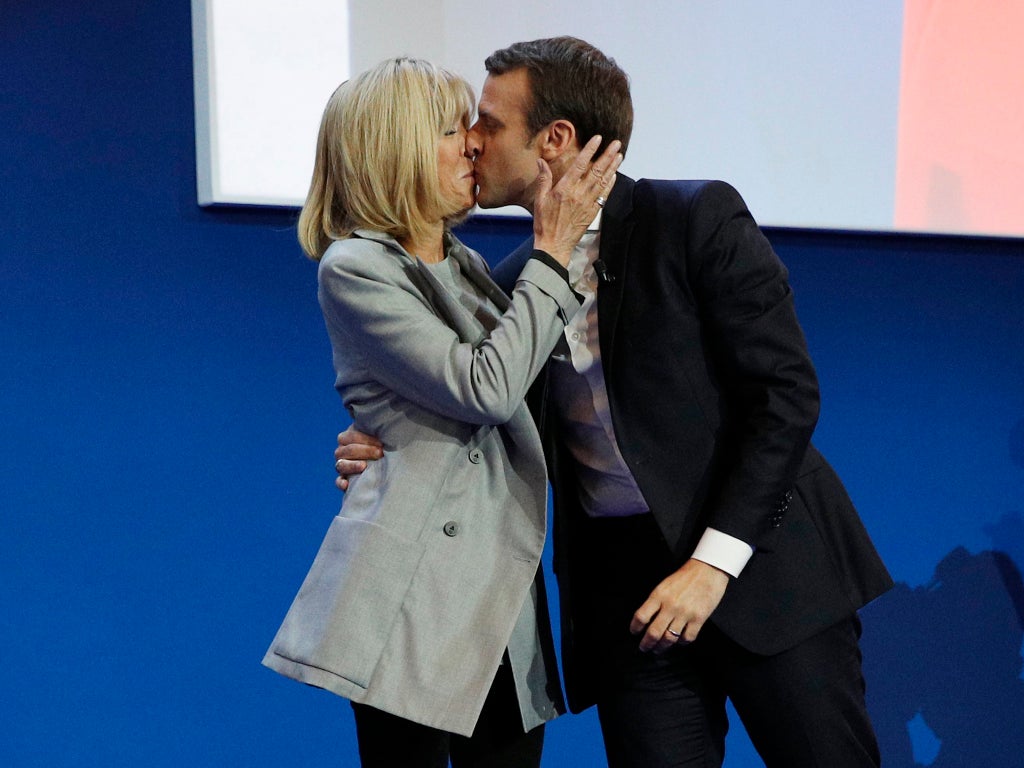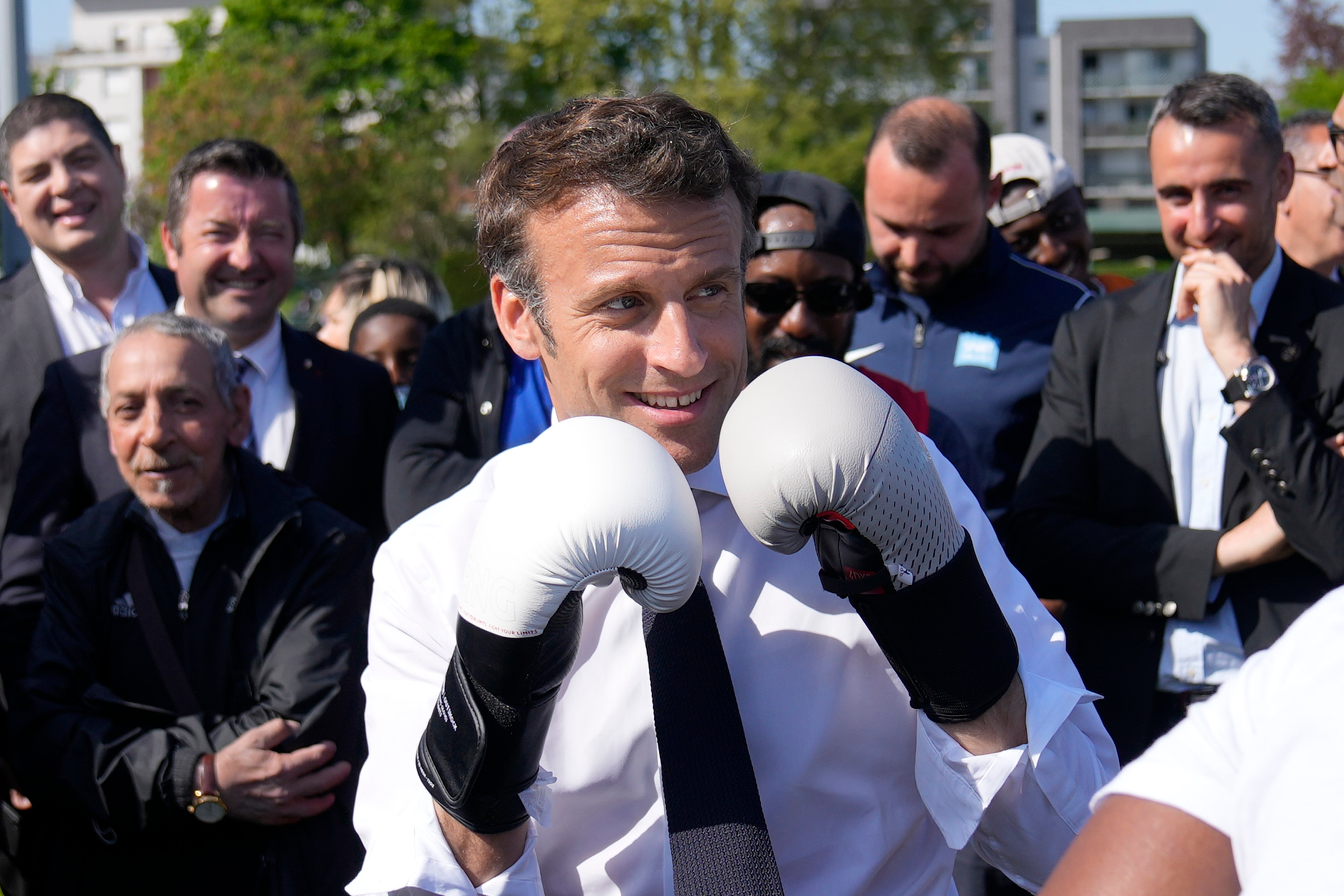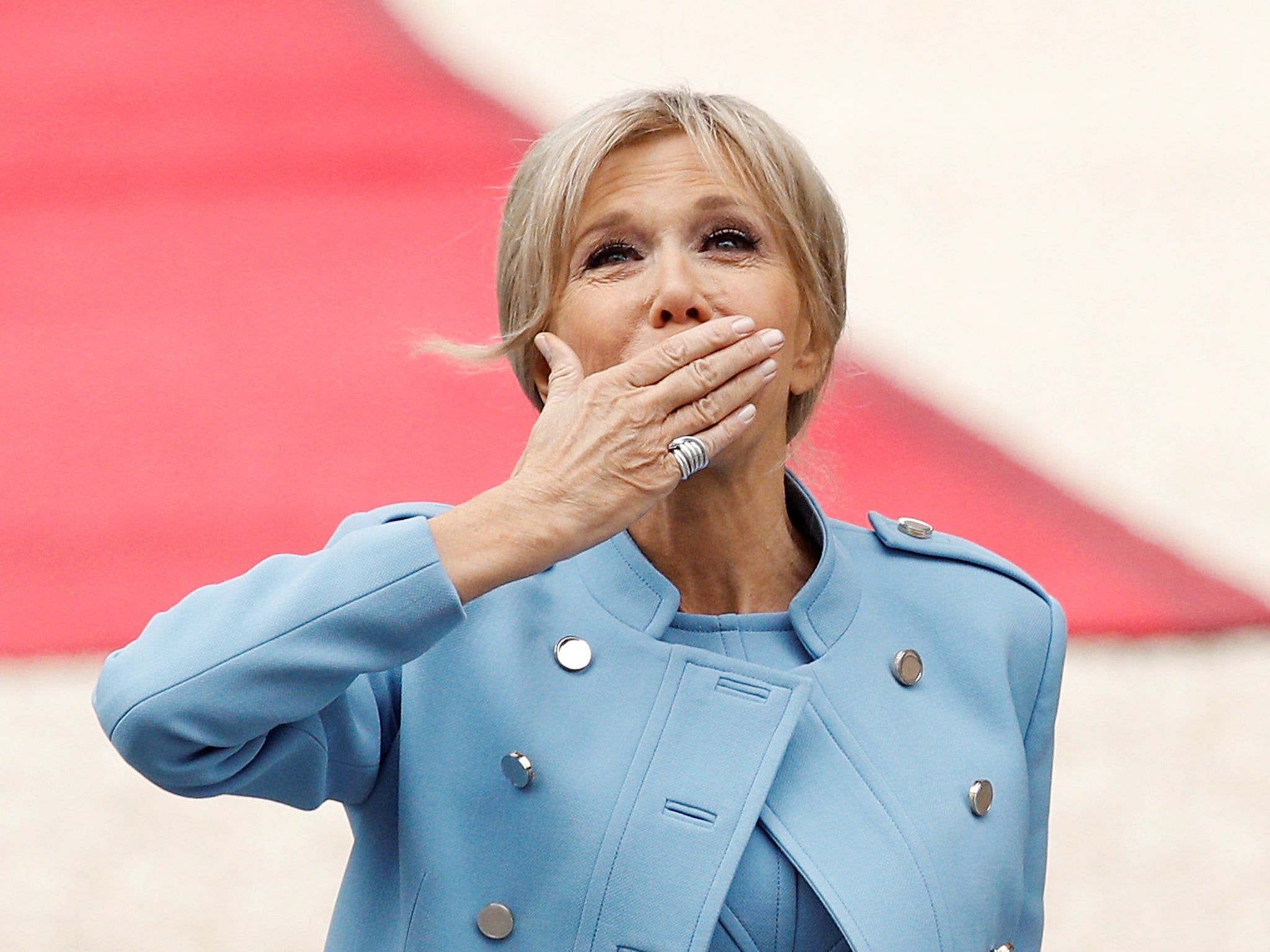
France’s president Emmanuel Macron is expected to win a second term in the Elysee Palace in Sunday’s runoff vote against far-right challenger Marine Le Pen, having gained 27.8 per cent of votes against her 23.1 per cent in the first round and topped opinion polls throughout the race.
Mr Macron impressed viewers during Wednesday evening’s lengthy TV debate with Ms Le Pen, in which he appeared combative and even a little haughty, challenging his opponent over her party’s financial ties to Vladimir Putin and Russia, and questioning her competence to govern.
However, the incumbent remaining in power is far from a formality, despite positive polling in his favour, as much of the French public remain unimpressed by his pro-Europe, pro-business policies at a time when France is mired in a cost of living crisis driven by inflation.
A lot of voters support the radical change that Ms Le Pen represents, especially now that she has made moves to detoxify her party and recentre its focus on domestic concerns, although, for many, her hardline anti-immigration rhetoric remains too bitter a pill to swallow.
When Mr Macron was elected in 2017, he became the youngest president of the republic in France’s history at just 39.
He has since led the country through five years of domestic and international turmoil, from the “gilet jaunes” (yellow vest) protests on the streets of Paris against fuel tax rises to the coronavirus pandemic.
The ups and down of his first term are perhaps nowhere more starkly illustrated than in the contrast between the famous photograph of him celebrating France’s 4-2 World Cup Final win over Croatia in Moscow in July 201, and his return to the Russian capital four years later to implore Mr Putin not to invade neighbouring Ukraine, where he was kept at a strict distance at the far end of a long banquet table.
As for his background and personal life, Mr Macron was born in Amiens, north of Paris, on 21 December 1977, his father Jean-Michel a professor of neurology at the University of Picard and his mother Francoise a doctor.
He has two younger siblings – Laurent and Estelle – and a paternal great-grandfather, George William Robertson, originally from Bristol.
The Macrons were not a religious family but their eldest son was baptised as a Catholic at the age of 12 at his own instigation. However, Mr Macron has subsequently said he considers himself to be an agnostic.
As a teenager, Mr Macron was educated at the Jesuit institute Lycee la Providence in his hometown and it was here that he first encountered literature professor Brigitte Auziere with whom he fell in love and would later marry, despite her being 25 years his senior and already married with three children.
The pair bonded during a theatre workshop preparing for a production of the Italian play The Art of Comedy (1964) by Eduardo de Filippo, prompting concern from Mr Macron’s parents, who sent him to complete his high school studies at the elite Lycee Henri-IV in Paris instead.

He complied, reluctantly, but promised the then Ms Auziere that he would return for her.
“A love often clandestine, often hidden, misunderstood by many before imposing itself,” was how he described their relationship in his memoir.
“I was totally charmed by his intelligence,” Brigitte Macron once told a France 3 documentary. “He wasn’t like the others.”
A classmate quoted by Le Parisien remembered: “In class, she always used him as an example. She was completely charmed by his literary talent. He wrote poems all the time and she read them aloud.”
Mr Macron went on to study philosophy at the University of Paris-Ouest Nanterre La Defense, writing a thesis on Machiavelli and Hegel, earned a master’s degree in public affairs at Sciences Po where he specialised in governance and economics and trained for the civil service, graduating from the Ecole Nationale d’Administration in 2004 after serving an apprenticeship at a French embassy in Nigeria.
Between 2004 and 2008, he worked as an Inspector in the Inspection Generale des Finances, a branch of the French finance ministry.
It was during this period that the then Ms Auziere ended her 32-year marriage to banker Andre-Louis Auziere in order to marry him, their wedding taking place in October 2007 and seeing Mr Macron become stepfather to her children: Sebastien Auziere, an engineer; Laurence Auziere-Jourdan, a cardiologist; and Tiphaine Auziere, a lawyer.

Moving on to become an investment banker at Rothschild & Co between 2008 and 2012, Mr Macron then entered politics when he was appointed deputy secretary general by French president Francois Hollande shortly after his election in May 2012, making him a senior advisor in a position of influence.
From there, he was appointed to the French cabinet as Minister of the Economy, Industry and Digital Affairs in August 2014 by prime minister Manuel Valls, serving two years in the role before resigning, leaving the Socialist Party and running as a centrist, pro-business candidate for La Republique En Marche!
That campaign saw him take on and beat Ms Le Pen in the competition to succeed Mr Hollande, her cause not helped by a disastrous display during that year’s televised debate in which she lost her composure, muddled her notes and appeared ill-prepared. The rest is history.
Away from government, Mr Macron and his wife – who has proven an asset on the world stage, not least in dealing so graciously with the likes of Donald and Melania Trump at the White House or Boris Johnson and Carrie Johnson at last summer’s G7 gathering in Cornwall – have an adopted black Labrador Retriever-Griffon named Nemo.
In his own time the president is an accomplished pianist, a keen supporter of Olympique Marseille and a fan of skiing, tennis and boxing.







